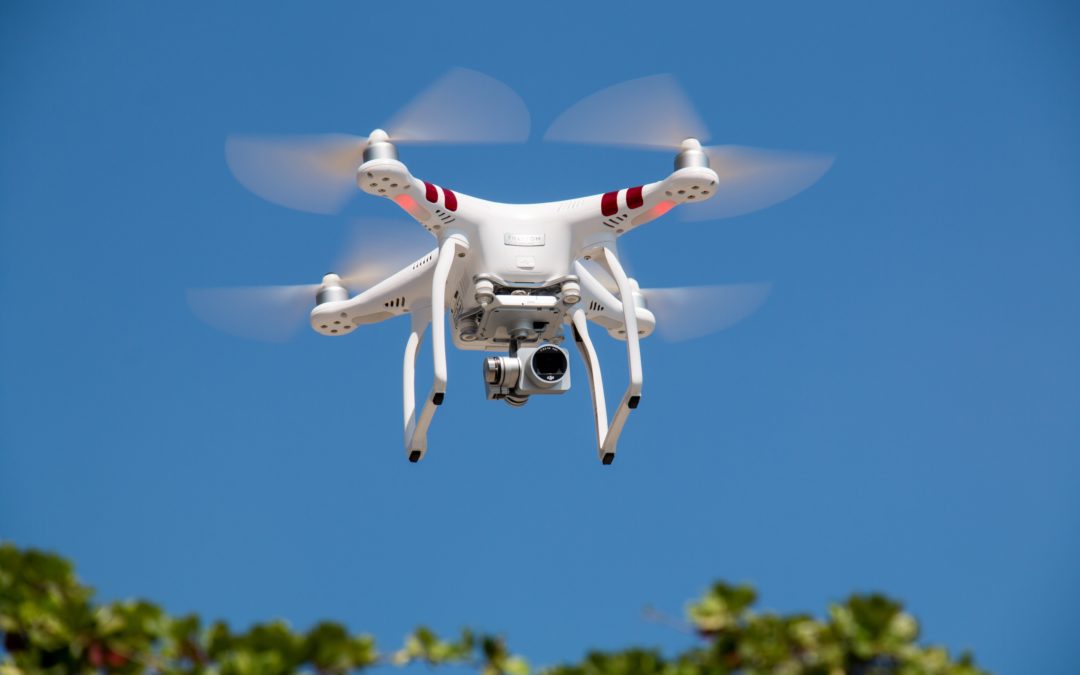While unmanned aerial vehicles (UAVs), or drones, have been around in one form or another since the 1920s, it’s only in the last decade or so that they’ve become more mainstream and used in industries other than defence.
Until recently, this versatile and agile technology was limited to privileged hobbyists and a few specialist businesses, but drones are now used across commercial, scientific, engineering, agriculture and recreation industries with great success.
This means that the demand for skilled pilots is on the increase, creating a new pathway into aviation for those passionate about flying but who, for whatever reason, may seek an aviation career outside of the norm of being an aircraft pilot.
Refilwe Ledwaba, a fixed wing and helicopter pilot, flight instructor, women’s rights advocate and the founder of The Girls Fly Programme in Africa (GFPA), says that being a drone pilot is an exciting career opportunity for women, adding that qualified drone pilots who are knowledgeable about the legislation surrounding this emerging industry are increasingly in demand.
“The huge popularity of the Girls Fly Programme in Africa Aviation and Space Camps shows just how passionate young women are about careers in aviation – and how many are seeking new and exciting ways to enter the sector,” she says.
Drone aviation offers a whole new world of career opportunities for young women. While achieving all the necessary certifications to fly drones professionally is onerous and expensive, doing so is more affordable than the qualifications required to fly commercial aircraft, making the industry more accessible.”
With the drone industry worldwide expected to grow by 51.1% over the next eight years, research shows that 62% of drone services providers are self-employed, with service providers only able to make a success of their business if they’re driven by an entrepreneurial passion and the skills to run their own company.
Teaching SME-level drone businesses these valuable skills was the driving force behind the recent drone accelerator programme run by Mzansi Aerospace Technologies in partnership with Royal HaskoningDHV, which set out to show qualifying businesses how to drive the adoption of drone technology in South Africa, and harness its potential to create jobs and boost employment.
The programme was hosted at the Centre for Entrepreneurship Rapid Incubator (CfERI) at the Ekurhuleni West TVET College in Katlehong, and was supported by partners including the Small Enterprise Development Agency (SEDA), the City of Ekurhuleni, the National Youth Development Agency and United Drone Holdings.
“We want to address two main challenges: the fact that most start-ups fail because there is no market demand for their product, and that, of the 60 licensed drone operators in South Africa, only one is black owner managed,” explains Victor Radebe, founder of Mzansi Aerospace Technologies. “The programme aimed to help start-ups to refine their innovations, to help them gain traction in the marketplace or service that solves specific challenges in various industries.”
Among the 13 companies participating in the incubator project were four woman-owned businesses, operating in industries as diverse as defence, security, law enforcement and infrastructure surveillance, as well as construction and building maintenance, civil engineering services, and built environment project management.
“This first drone business incubator highlighted the fact that drone pilots and businesses that offer drone services are increasingly in demand across South Africa, and well beyond the main centres – emphasizing that careers as drone pilot – unlike conventional aviation skills – are not just linked to cities with airports,” says Ledwaba.
“Piloting drones is a career that can be taken anywhere across industries and countries, whether flying a survey aircraft across a remote mining site, or supporting asset management strategies for multinational corporates,” adds Gideon Treurnich, Strategic Business Development Manager at Royal HaskoningDHV South Africa.
“Drones enable us to break through new barriers in gathering and sharing real-time data, reducing costs, and increasing efficiency, safety, and security – and as demands for these elements grows across industry, business and government spheres, the time is perfect for women seeking an exciting future to explore the sector,” he adds.
Royal HaskoningDHV, Mzansi Aerospace Technologies, and GFPA are partnering to introduce the drone industry to young women learners, as part of their collective goal of growing and diversifying the drone industry in South Africa.


